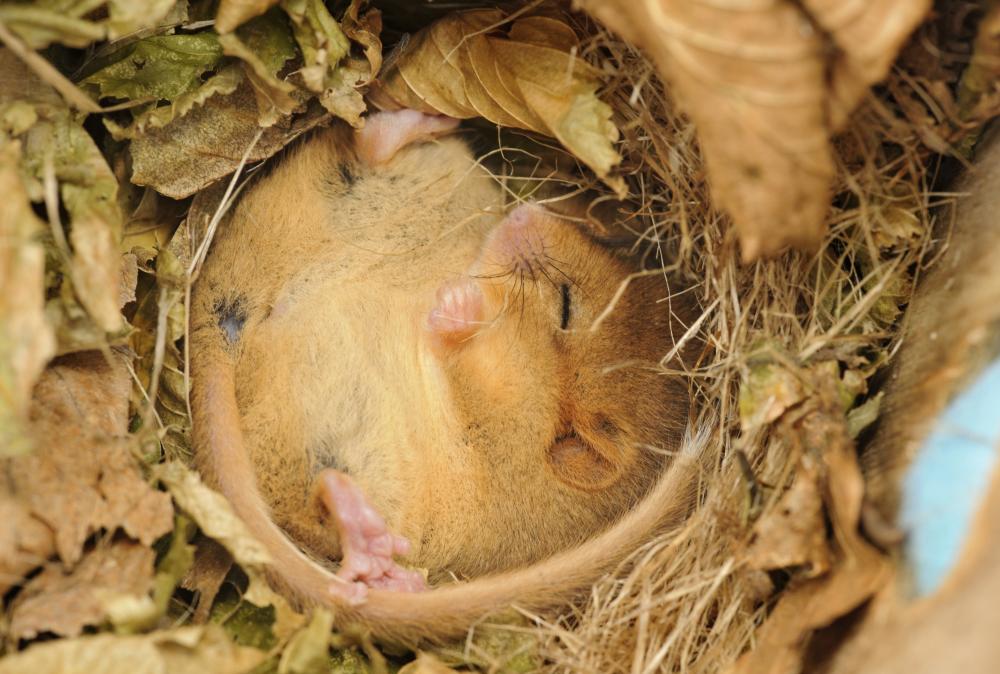The Wildlife Trust and RSPB have said that the planning bill breaks Labour’s nature promises.
New research shows that bats and great crested newts are a factor in just 3% of planning appeal decisions. This evidence that nature does not block growth is published as the Planning & Infrastructure Bill reached a critical stage when the Committee discussion of the Bill ended.
The report, Planning & Development: nature isn’t the problem, adds to the growing body of evidence – including the Government’s own impact assessment – showing that nature protections do not block growth.
A new poll, also published today, shows that the public think the Government is failing nature. Conducted by Savanta and commissioned by The Wildlife Trusts, it finds:
· Less than a third of adult voters believe the Government is taking the nature crisis seriously enough (26%), is listening to local people in planning decisions (24%) and is achieving success in expanding nature-rich habitats (24%).
· Less than a third (32%) also felt the Government had kept its promise to improve access to nature, promote biodiversity and protect our landscapes and wildlife.
· Just a quarter of respondents (25%) said they would support new building developments in their local area if these new developments harmed the local environment.
The Office for Environmental Protection recently declared that the Planning & Infrastructure Bill will cause environmental regression. To date, Wiltshire Wildlife Trust and other NGOs have called for a series of amendments which would tone down the most damaging aspects of the Bill, while also suggesting positive measures to improve it such as adding safeguards for irreplaceable habitats including chalk streams, where Wiltshire has some of the last remaining chalk stream habitats. However, the Government has rejected these and so now The Wildlife Trusts has joined forces with the RSPB to call for the Nature Recovery part 3 of the Bill to be removed.
The Planning & Infrastructure Bill was introduced in March, following months of false statements from the Chancellor claiming that nature protections were a blocker on development and pledging action in the name of growth.
Jo Lewis, chief executive of Wiltshire Wildlife Trust said: “This Government promised a win-win for nature and economic growth in its manifesto. Now vital safeguards for nature are missing in the Planning Bill, and farmers have been cut off without warning from support for nature-friendly farming. The Government’s promise for nature has been broken.
“The Wildlife Trusts - and our nearly 1 million members - cannot stand by and allow that to happen in what is already the most nature-depleted country in Europe. We call on the Government to keep its promises and stand up for nature as the foundation of our economy and our wellbeing.”
Craig Bennett, chief executive of The Wildlife Trusts said: “Before the General Election Labour promised to restore nature. Under a year later, the Chancellor is leading an ideological charge against the natural world despite it being the very foundation of the economy, society and people’s health. Promises have been broken, and millions of people have been betrayed.
“The Government’s Planning & Infrastructure Bill, in its current form, fundamentally undermines its commitment to protect nature. The so-called Nature Recovery part of the Bill is a Trojan horse – it’s a misnomer because, in reality, it is a licence to destroy. It replaces vital nature protections with a weaker substitute, and has been described by the Government’s own nature watchdog as ‘environmentally regressive’ because it puts irreplaceable habitats and threatened species at risk.
“The Wildlife Trusts and others have offered constructive solutions that would allow the Bill to proceed and achieve its aim to accelerate development whilst maintaining strong environmental protections. We’re appalled that these have all been spurned. Nature is in crisis and must not suffer further damage. Much loved places like the New Forest could now be at risk – that’s why we’re now saying the misleadingly named ‘Nature Recovery’ section must be removed.”
Beccy Speight, RSPB chief executive, said: “Despite engaging in good faith with the UK Government for many months, it’s now clear that the Bill in its current form will rip the heart out of environmental protections and risks sending nature further into freefall.
“The fate of our most important places for nature and the laws that protect them are all in the firing line. The wild spaces, ancient woodlands, babbling brooks and the beautiful melody of the dawn chorus – it’s these natural wonders that delight people all over the country and support our physical and mental health that are under threat. That cannot be allowed to stand.
“The evidence clearly shows nature isn’t a blocker to growth. The government has identified the wrong obstacle to the problem it’s trying to overcome, and that has led it to the wrong solutions. With no meaningful amendment in sight, the complete removal of Part 3 of the Bill is the only responsible option left.”
The Planning Bill threatens to put the most protected, valuable and vulnerable sites for nature at risk. 80% of the worlds chalk habitats are in the UK, with over 50% located in Wiltshire. Places such as our precious chalk downloads and chalk streams including the River Wylye and River Og, and the Avon at Salisbury, which is considered to be one of the most biodiverse river systems in lowland Britain1, will no longer be as strongly protected from development. Furthermore, any commitments required of developers to restore and improve nature will not be guaranteed to benefit the communities who lost their local natural spaces – compensation could take place miles away, even in another county.
The legislation would significantly weaken important Habitat Regulations – rules which have helped to effectively protect wildlife and wild spaces for decades. In so doing the Bill risks stripping away vital protections without clear requirements on developers to deliver the nature restoration needed to revive precious landscapes such as chalk streams, wildflower meadows and ancient woodlands and to protect treasured species like hazel dormice, otters and struggling bird and butterfly species.
The Planning Bill follows on from months of anti-nature rhetoric from the Chancellor, and amidst a backdrop of an ongoing Treasury squeeze on the farming budget that supports nature restoration.
For more information on The Wildlife Trust, visit: @WildlifeTrust








Your Comments
Be the first to comment on this article
Login or Register to post a comment on this article